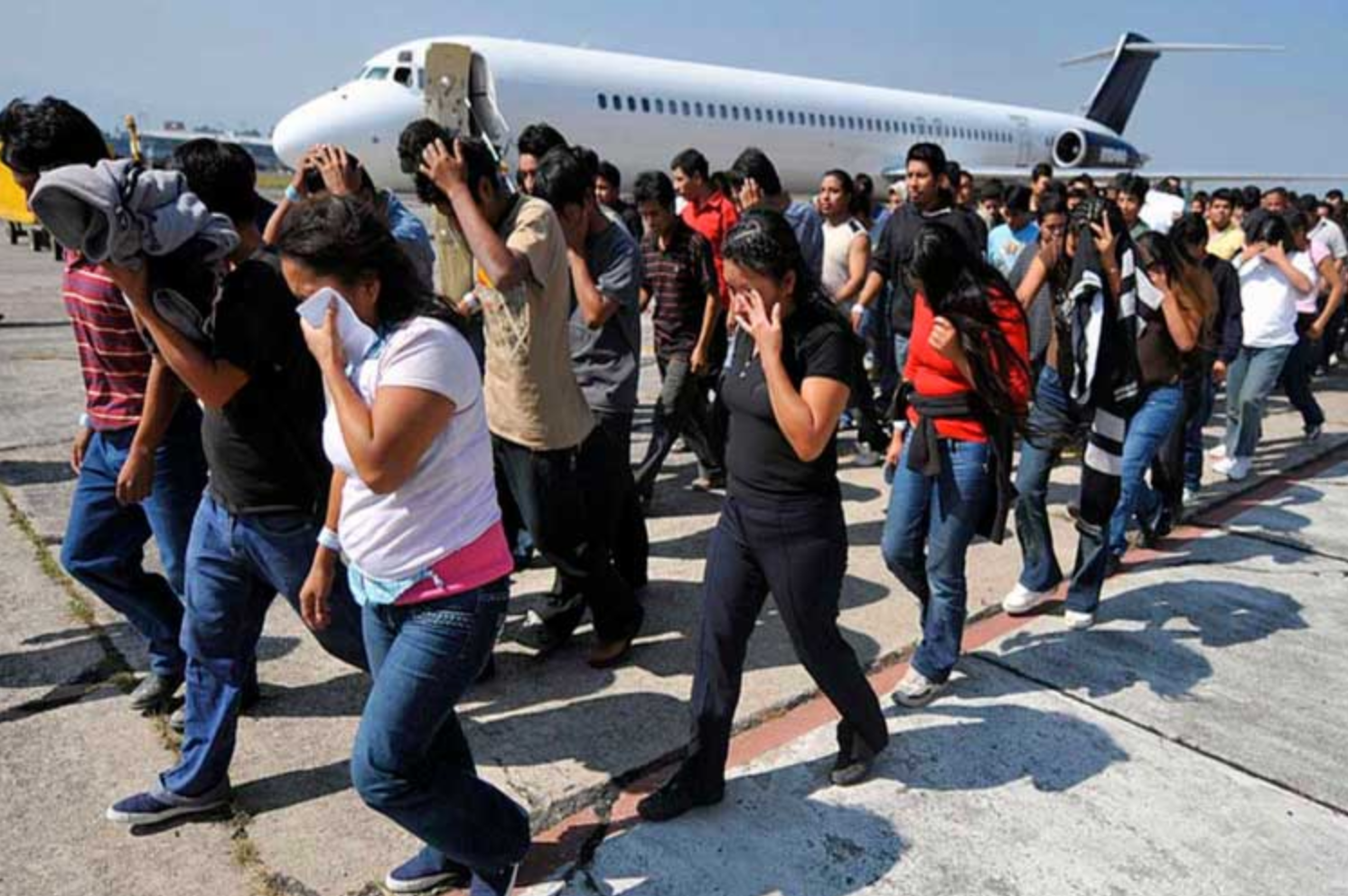Since 2019, during the administrations of Jair Bolsonaro and Donald Trump, a recurring theme in Brazilian media has been the sight of planes chartered by the U.S. government arriving at Confins International Airport, carrying deported Brazilians. Between October 2019 and July of this year, the number of Brazilians deported reached 9,885, arriving on over 100 chartered flights. Over this period of 4 years and 10 months, the state of Minas Gerais (MG) received an average of 170 deportees per month.
This issue gained visibility during the pandemic years and the most recent presidential elections in both countries. However, the debate has largely focused only on the number of deportees arriving in Minas Gerais each month, with speculation about whether these deportations will increase in the near future.
Air deportation to Minas Gerais is just one type of deportation faced by Brazilian migrants. Moreover, it represents only one stage in a long process of violence suffered by many of these compatriots who seek better living conditions in the U.S.
Why don’t we denounce other ongoing deportations?
First, the figures from Confins Airport do not reveal the total number of Brazilians deported. These figures only account for those deported on chartered flights from the U.S. to Minas Gerais. At least two other types of deportations are numerically unknown. The first is the longstanding and continuous deportation of Brazilians via empty seats on commercial flights, who may not necessarily arrive in Brazil through Minas Gerais.
The second, more critical and lesser-known, is the deportation of Brazilians to countries other than Brazil. For instance, the U.S. government’s Remain in Mexico program, established in 2019, has detained or returned Brazilian asylum seekers to Mexican territory. In addition to violating the United Nations Refugee Convention by denying protection to people fleeing persecution and torture, this immigration policy leaves these asylum seekers stranded in Mexico without access to humanitarian aid. We lack information about the number of Brazilians affected by these deportations or the types of violence they endure when detained or returned to Mexico.
However, U.S. immigration controls do not seem to be limited to Mexican soil. Recently, their presence has expanded into Panama. The Biden administration allocated $6 million in “aid” for the Panamanian government to purchase equipment, transportation, and logistics to deport migrants who have no legal grounds to remain in the country and might otherwise head to the U.S. This move appears aimed at tightening control over both ends of Central America.
Arbitrary decisions against Brazilians on U.S. soil are also known to have occurred. This includes the case of 47 Brazilian children, who were sons and daughters of Haitians and who were summarily deported to Haiti.
Minas Gerais and the Brazilian government’s response to the tragedy
The second point to highlight is the U.S. government’s choice of Confins International Airport as the sole and final destination for these chartered flights. The U.S. government claims that the majority of the deported Brazilians come from Minas Gerais, a state historically known for its established migration networks. However, journalistic reports indicate that many Brazilians arriving in Confins come from other Brazilian states.
The third point concerns the unilateral decision behind these deportations. Since 2006, during the second term of the current president, Lula, Brazil had abolished the practice of deportation via chartered flights. In 2019, this practice was reinstated just before the pandemic. In a unilateral decision made by the Trump administration, Bolsonaro immediately complied. From October 2019 until the end of his administration, 7,639 Brazilians were deported on chartered flights from the U.S.
Following these turbulent far-right governments in both Brazil and the U.S., the current administrations have not reached an agreement to end these deportations. Despite Biden’s earlier indication that accelerated deportations would end, the process has continued.
Although the Lula administration had signaled that it might overturn the diplomatic measures taken by Jair Bolsonaro’s administration, deportations have persisted. The commitment on both sides has cooled. Since the start of Lula’s third term, just over 2,000 Brazilians have landed in Minas Gerais.
Which airlines are involved in the silent tragedy?
The fourth point concerns reports of violence caused by the airlines. Reports by the University of Washington’s Center for Human Rights reveal that operations of the Immigration and Customs Enforcement Air Operations, known colloquially as ICE Air, ignore a series of violent acts carried out by airlines contracted through secret agreements. These include iAero Airways, responsible for nearly 80% of the over 100 flights to Brazil, and Omni Air International, responsible for nine flights.
Reports from the deported Brazilians themselves indicate that adult men were treated like criminals on these flights. They boarded the same flight but were separated from their families, including minors, and had their legs and hands shackled in the U.S., only to be unshackled hours before the plane landed in Minas Gerais.
In other words, deportees flew over Brazilian territory while still shackled by U.S. authorities, in violation of Brazilian law.
Migration is a human right
The final point, equally important, is how we treat these Brazilians. While there is evidence that some of the nearly 10,000 deportees were wanted by the Federal Police, we cannot generalize. It is common to find adjectives such as “illegal,” “clandestine,” or “vermin” capable of “infesting” or “impoverishing” the self-proclaimed “America” in the articles discussing these deportations. Emigration is not a crime; it is a human right to seek better living conditions.
In November of this year, there will be presidential elections in the U.S. In a country gradually losing its economic and military hegemony, desperately supporting abusive and undemocratic governments worldwide, and seeing its middle class drifting further away from the American Way of Life, migration has once again become a campaign issue. Kamala Harris and Donald Trump have each promised, in their own way, to maintain a hardline policy against migrants.
On the other hand, contrary to the indications from the Brazilian government, the measures that harm Brazilian citizens and jeopardize their protection have not been revoked by the state as of 2022. Meanwhile, the deportation of Brazilians on U.S. chartered flights to Minas Gerais, with all its abuses, continues on a monthly basis. We know nothing about those returned to other countries.











